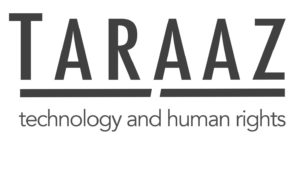BSOE Graduate Student Newsletter
New Announcements
UCSC Career Success 2020-2021Slug Support Pantry Fall Hours
Insight Fellows Program - Upcoming Webinars: Transitioning to Careers in Data and Tech
Announcements
*PLEASE NOTE THE UPCOMING UNIVERSITY DEADLINES*STEM Solutions in Public Policy Award
UCSC Career Success 2020-2021
Slug Support Pantry Fall Hours
Insight Fellows Program - Upcoming Webinars: Transitioning to Careers in Data and Tech
Global and Community Health Wellbeing Awards
eBay's Machine Learning Competition for Students
CALL FOR PROPOSAL: HUMAN RIGHTS BY DESIGN FELLOWSHIP
Announcements
*PLEASE NOTE THE UPCOMING UNIVERSITY DEADLINES*
Please note the following upcoming university deadlines, and ALWAYS check the Academic and Administrative Calendar for important dates and deadlines. Bookmark this year's Academic and Administrative Calendar and refer to it regularly.
Friday, October 9th Graduate Student Enrollment & Fee Payment
If you have not paid your registration fees or enrolled in the minimum number of courses by this date, you will be charged a $50 late fee. Please keep in mind that pending aid (Fellowship, GSR, TA) will not credit your account until you are enrolled in at least 5 units.
Friday, October 9th Graduate Student Part-Time Status
This is the deadline to apply for reduced course load and fees. Part-time status forms must be approved/signed by your faculty advisor and submitted to the BSOE Graduate Advising office by the posted deadline. Part-time application forms are available on the Graduate Division's website.
Thursday, October 15th Deadline To Apply For Degree
If you plan to complete your MS or PhD this quarter (Fall 2020), the degree application needs to be submitted to BSOE Graduate Advising office. This is also the deadline to pay for filing fee, if applicable. More guidelines for graduating are available on the Graduate Advising website.
Wednesday, October 21st Deadline to Add/Drop/Swap Courses
This is your last day to add, drop and swap courses. You will not be able to drop or withdraw from courses after this deadline has passed. If you are enrolled in a placeholder class, you MUST drop it by this deadline. More information on how to add, drop, and swap classes is available on the registrar website.
Wednesday, October 21st Grade Option
This is your last day to change your grading option for any courses you are enrolled in.
IMPORTANT: The system defaults to Satisfactory/Unsatisfactory grading. Instructions for how to change your grading option to letter grades (ABC) can be found here.
Thursday, November 12th Late Add with Fee Deadline
The Add by Petition form requires the signatures of both the instructor and the department adviser and needs to be submitted to the Office of the Registrar.
STEM Solutions in Public Policy Award
UC Center Sacramento is pleased to announce the STEM Solutions in Public Policy Award.
This award will recognize one or more outstanding proposals for new California legislation from UC STEM graduate students. The winner(s) will receive $1,000 for research support and -- should their bill advance through the legislative process –travel expenses covering a trip to Sacramento to convene with Legislators and/or legislative staff.
Submissions will be accepted until midnight Pacific time on October 23rd, 2020 and applicants will be notified of their status in March 2021. Further information is available at UCCS STEM Solutions or on the UCCS website (uccs.ucdavis.edu).
UCSC Career Success 2020-2021
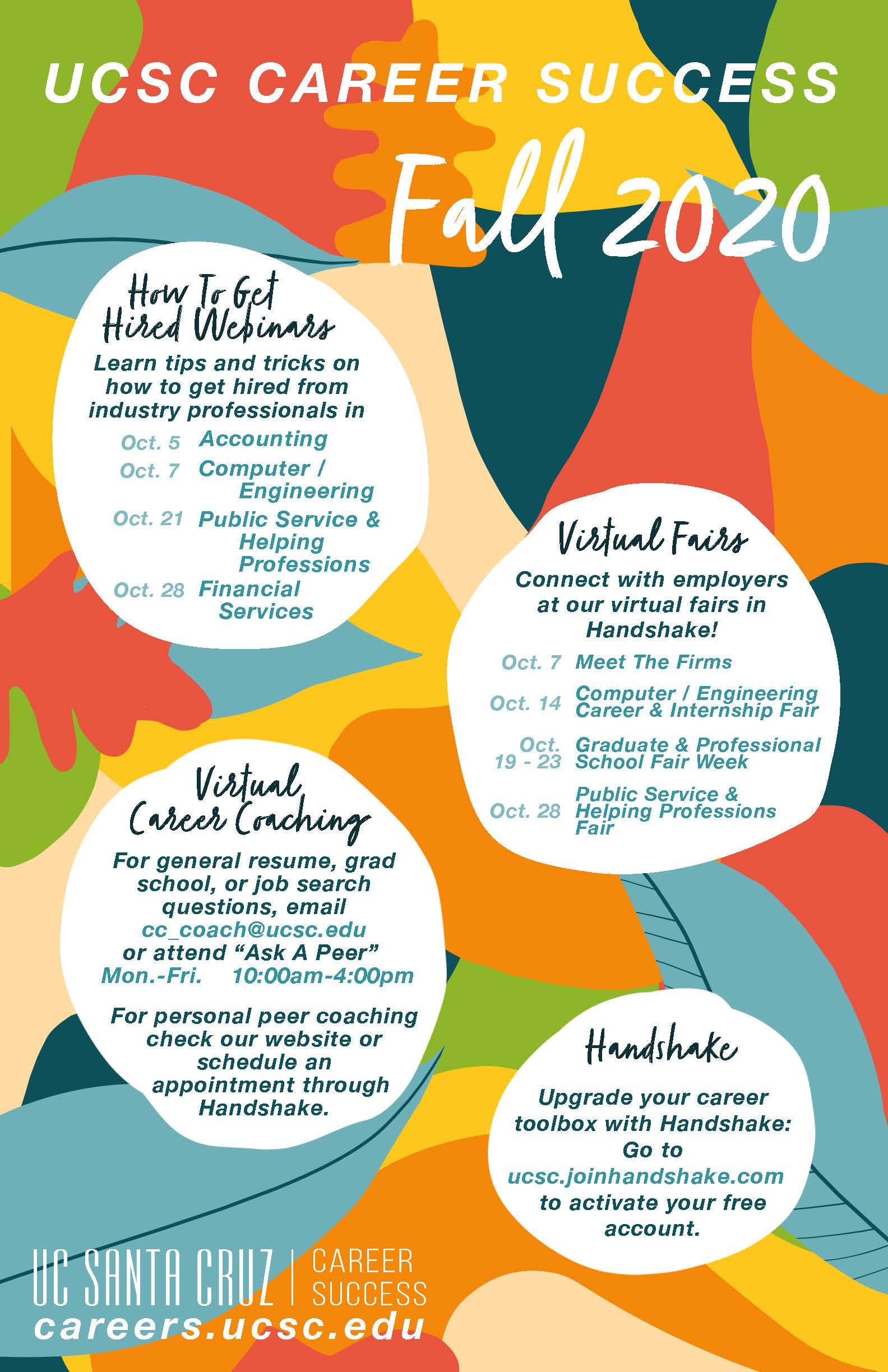 Career Success is excited to announce our academic year plan!
Career Success is excited to announce our academic year plan!
We are grouping events and support for students into six Industry Clusters! Our fairs, events and outreach will correlate to these groups:
- Arts, Entertainment, & Media
- Business & Financial Services
- Education, Legal & Human Services
- Environmental, Biotech & Life Sciences
- Health
- Computer Science, Engineering & Information Management
Banana slugs will be able to opt-in to a newsletter(s) pertaining to their area(s) of interest and will receive communication about upcoming events, job postings, and helpful resources! Stay tuned for the link to the newsletter sign up.
- Fall Quarter Poster (summarizing our services for Fall)
- Academic Year Infographic (summarizing our services for the year)
Students can access our upcoming events on the Career Success student event calendar or Handshake! We are excited to partner with Handshake to host our virtual career fairs. We will send students information on how to plan and prepare, but we will need your support in spreading the word.
For students who need help with job applications, we are now offering written resume and cover letter feedback! Click here for more information: https://careers.ucsc.edu/
If you are hosting a program related to career development and would like it to be featured in our weekly newsletter, please submit the information here.
Thank you.
Slug Support Pantry Fall Hours
Graduate students will have access during all the open hours. The Basic Needs team has designated grad only pantry hours specifically on Tuesdays 3:45 - 6:00 pm. Grads should enter via the patio so that we can keep the front door of the coffee shop closed to avoid other students trickling in.
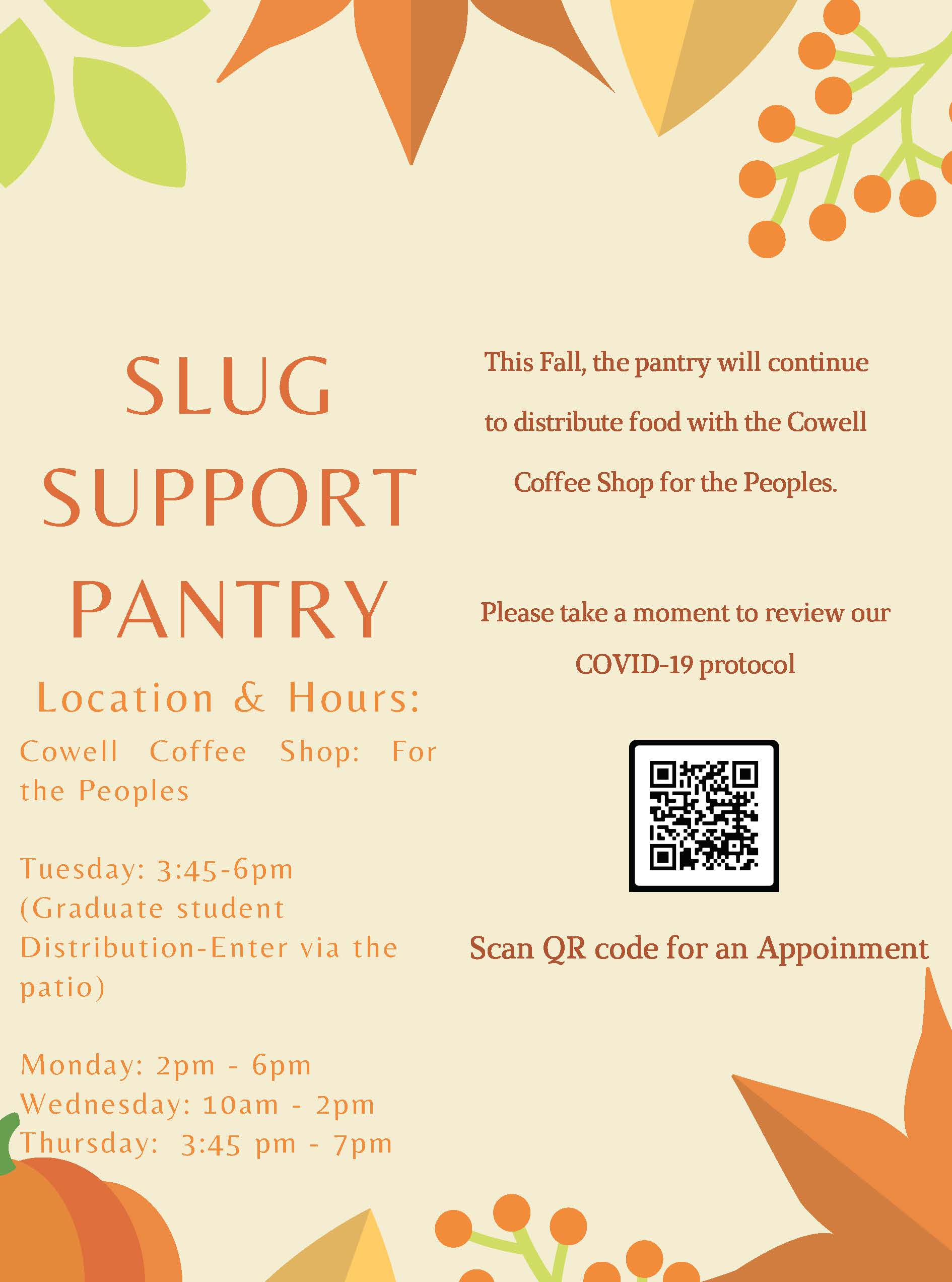
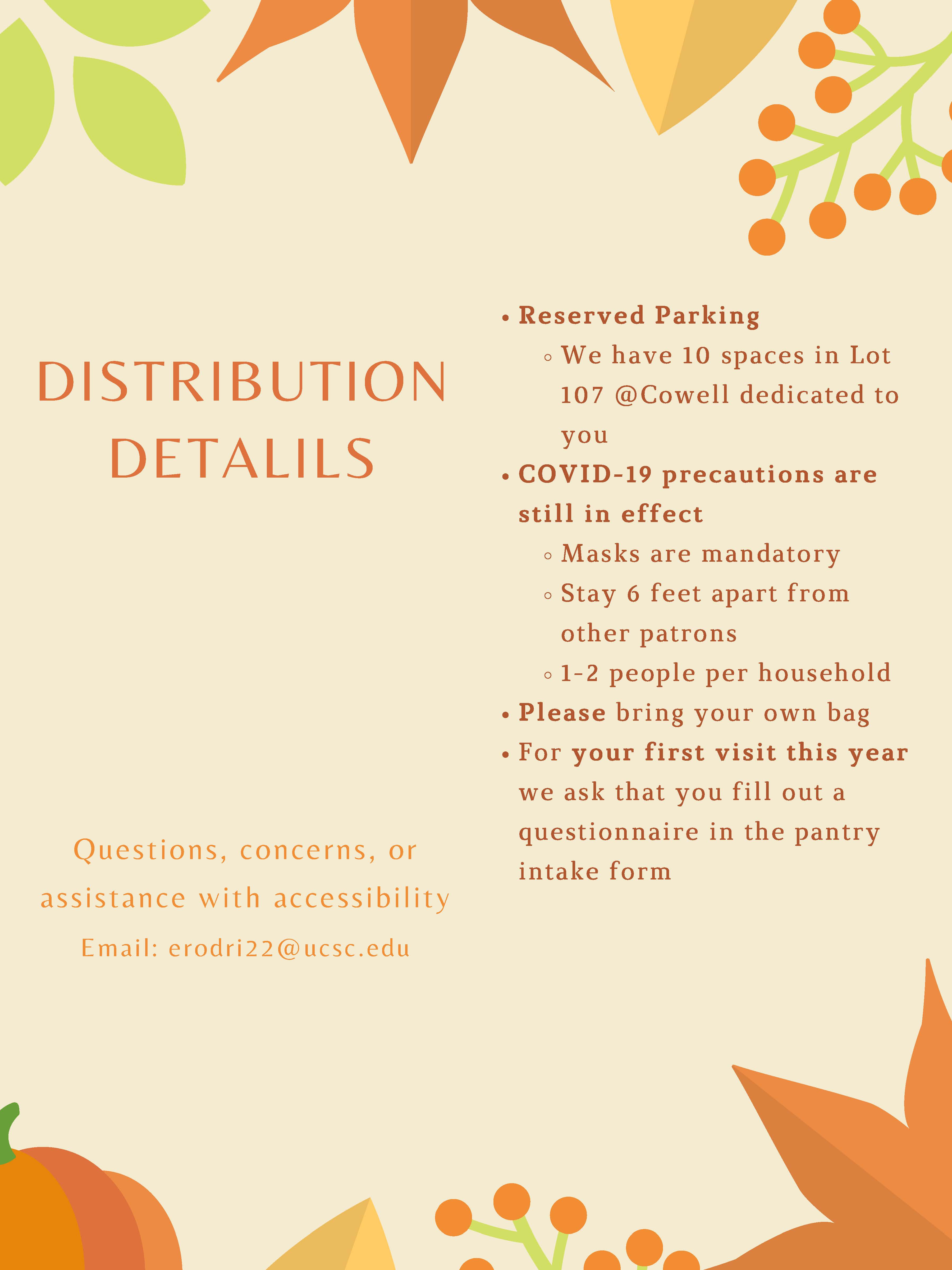
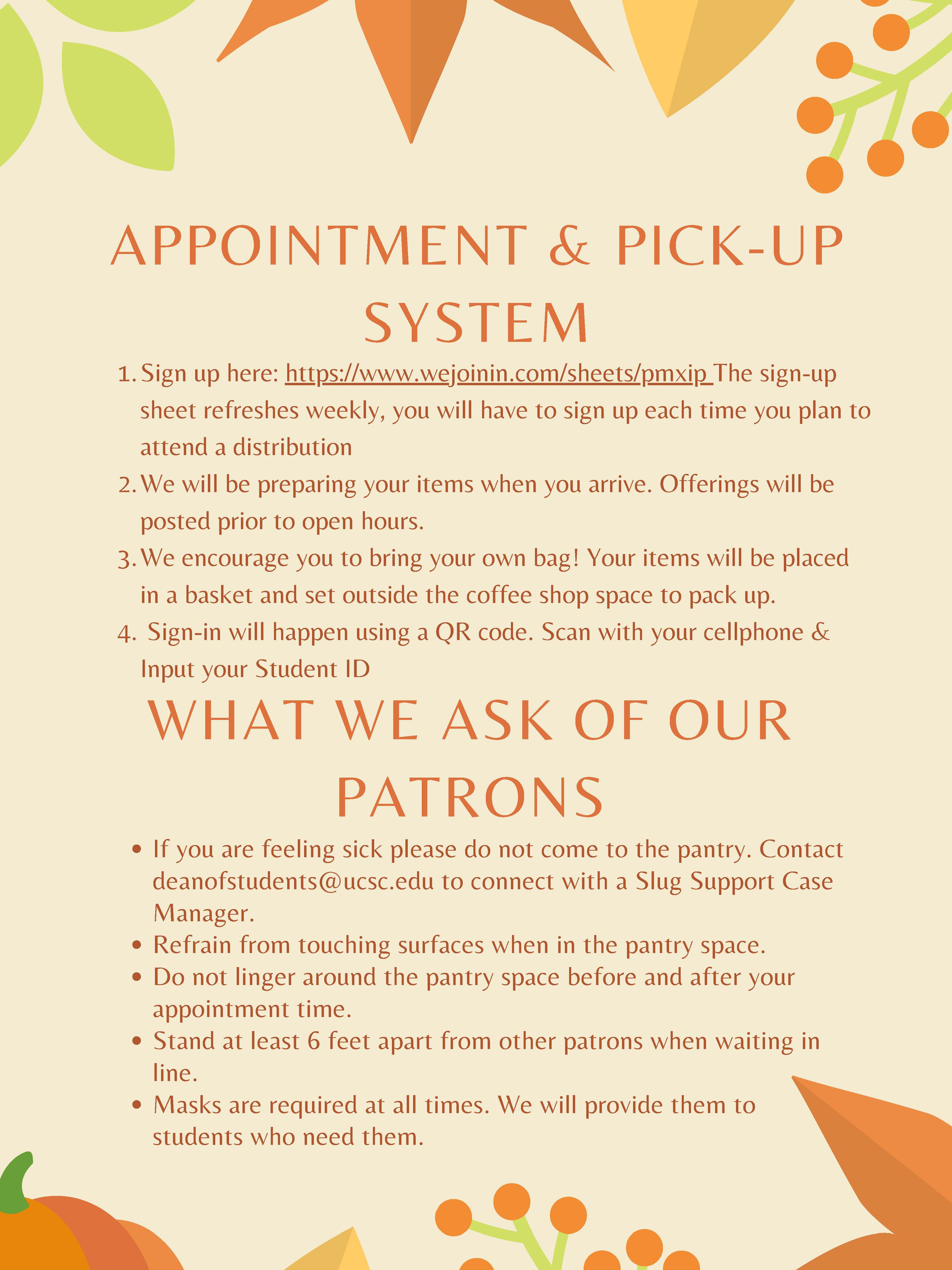
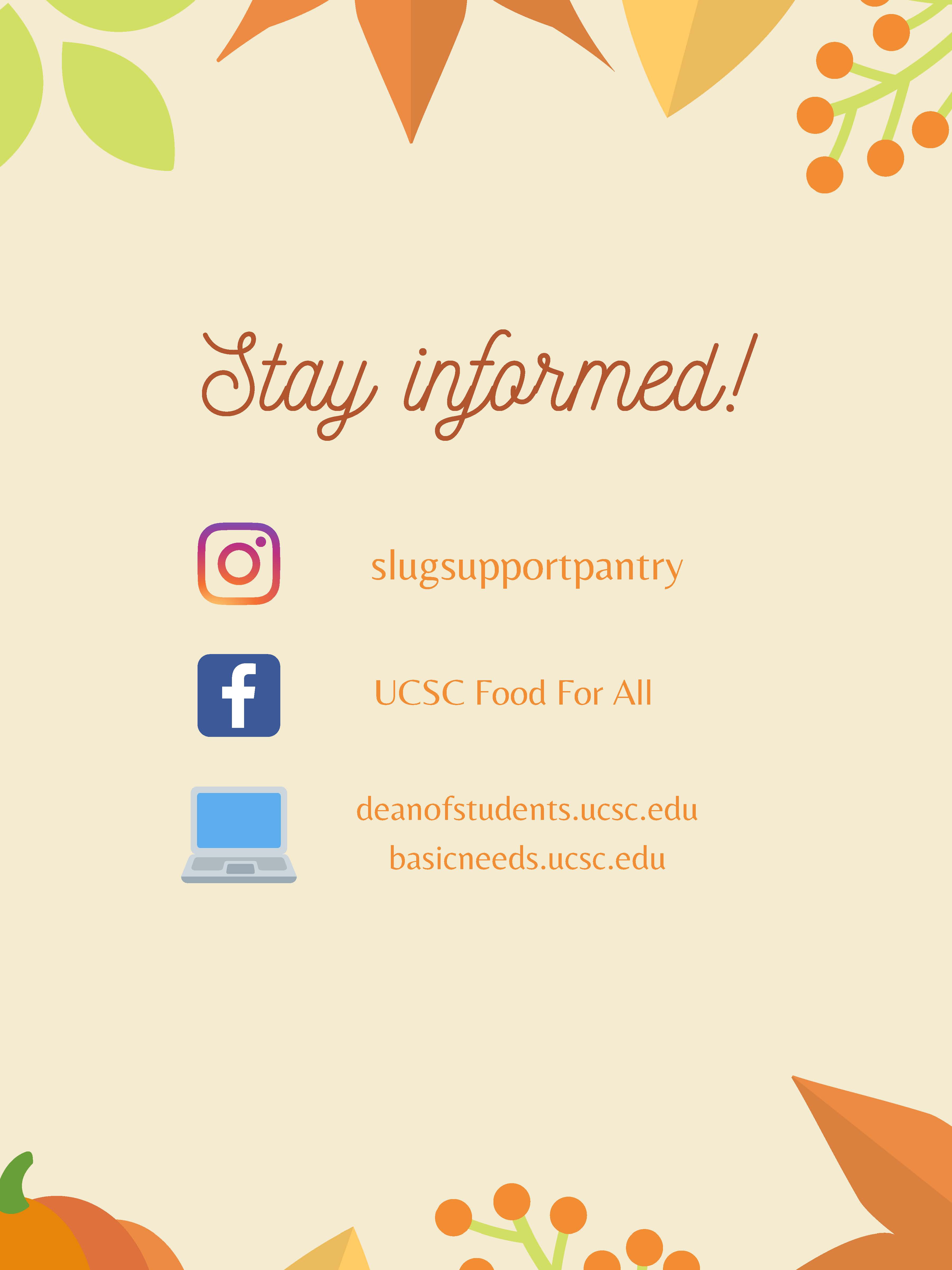
Insight Fellows Program - Upcoming Webinars: Transitioning to Careers in Data and Tech
Interested in a career in data science, engineering, machine learning, or other tech roles? Insight Fellows Program is hosting a series of webinars to help you learn more about the landscape, the kinds of careers that are available, and guidance to help you make the transition. Sign up for one or more of these webinars below!
Webinar 1: Careers in Distributed Computing
Join to discuss the rapid growth and demand for engineers in DevOps and Blockchain. We will chat about tips and next steps for transitioning into the industries. All backgrounds and experience levels are welcome!
Date: Wednesday, October 7th
Time: 3pm PT / 6pm ET
-----
Webinar 2: Transitioning from Academia to Industry
This session will cover the current state of the data science landscape, what kinds of careers are available, and how to leverage your experience in academia to help bridge the gap to industry.
Date: Wednesday, October 7th
Time: 5pm PT / 8pm ET
-----
Webinar 3: Careers in Data Science
Scientists from diverse fields, including physics, ecology, engineering, neuroscience, math, sociology, geosciences, statistics, computer science, and more, are playing key roles in transforming the way companies and public institutions work with data to impact our daily lives. Join this session for a high-level overview of the data science industry, how each field gives Fellows their own unique edge in the DS job market, and discussion of the Insight Fellows Program.
Date: Thursday, October 8th
Time: 11am PT / 2pm ET
-----
Webinar 4: Careers in Data Engineering
What exactly is data engineering, and how can I leverage my software engineering background to get into the world of Big Data? In this session, we’ll discuss whether this rapidly growing field suits your skills and career goals and how Insight's Data Engineering Fellowship Program can help you make the transition.
Date: Thursday, October 8th
Time: 4pm PT / 7pm ET
-----
Webinar 5: Transitioning to a Career in Artificial Intelligence
Join this session for an overview of the artificial intelligence landscape, as well as advice on transitioning into roles in AI. This session is designed for beginners interested in transitioning into deep learning and machine learning engineering roles.
Date: Thursday, October 15th
Time: 2pm PT / 5pm ET
-----
Interested in attending, but can’t make the time? Sign up to receive information about future sessions: https://notify.
Interested in learning more about Insight and our programs? Visit: https://www.
Global and Community Health Wellbeing Awards
The UCSC Division of Social Sciences Global and Community Health (GCH) Wellbeing Awards program enables undergraduate and graduate students to complete a research project that addresses Global and Community Health in collaboration with a community organization. The program is offered through the Institute for Social Transformation, who supports and facilitates the wellbeing awards.
Global and Community Health constitutes an urgent area of research, study, and practice. Our interdisciplinary program prioritizes the improvement of health and well-being in communities worldwide. Building upon collaborations across departments, divisions and the community here in Santa Cruz, we seek to address forces affecting health outcomes that range from the molecular, ecological and genomic to the global, political and economic. Ultimately our goal is to support the sustainability of communities and climates for health both locally and globally, doing so in ways that cultivate a new generation of global and community health leaders.
Please, direct questions to Nancy Chen nchen@ucsc.edu or the Institute for Social Transformation at transform@ucsc.edu.
Please visit this website for more information.
Deadline is October 30, 2020
Up to 10 awards of up to $1,000 each will be awarded.
Application:
Eligibility: Funding is offered to highly motivated undergraduate and graduate students currently enrolled through Spring 2021 and in good standing at UC Santa Cruz. Funded students must participate in a public or virtual event highlighting their work. We encourage all students at UCSC to apply, but undergraduates in the Social Sciences will be prioritized. During COVID-19 restrictions all research projects will need to be conducted in a manner that is safe and consistent with current guidelines.
Award: Student awards are limited to a maximum of $1,000 for community-based research during the academic year 2020-21. If students are applying for a group project, the award will be shared amongst the group members. The award is paid as a fellowship to help cover expenses such as: mileage, food, research supplies, data collection, equipment, software, hardware, survey incentives, etc.
Information Workshop: An information session will be offered on Wednesday, October 14, 12-1 PM.
eBay's Machine Learning Competition for Students
For the second year, eBay is running a ML Challenge. The prize of the competition is an internship at eBay for the winning student or team.
The announcement attached describes the competition in more detail, but in a nutshell:
The question we invite you to address is how to identify two or more listings as being for the same product by putting them into the same group. We call this Purchase Level Equivalency (PLE). That is, if a buyer purchased two items from two different listings in a single group, they would assess that they had obtained two instances of the same product.
The competition started August 24. It is being hosted on EvalAI.
Please feel free to ask any questions. We have set up a mailbox dedicated to this competition at MLChallenge@ebay.com.
CALL FOR PROPOSAL: HUMAN RIGHTS BY DESIGN FELLOWSHIP
https://citrispolicylab.org/hrbdfellowship/
Taraaz and the CITRIS Policy Lab are pleased to announce the launch of the Human Rights by Design Fellowship Program. Two $1000 fellowships will be provided to University of California graduate students (currently enrolled in Master’s, Ph.D., or J.D. programs at a campus in the University of California system) to carry out projects at the intersection of technology and human rights. During the fellowship program, fellows will work on an original project of their choice and receive feedback and support from the directors of the fellowship program. They will present their completed projects at a virtual event organized by Taraaz and the CITRIS Policy Lab.
Background
Technologies are not neutral. Values, principles, and standards are always built into technological systems. From the first stages of ideation to the last stages of testing and deployment, decisions are made by executives, policymakers, designers, and developers that create both positive and negative effects of technology on society. We believe that human rights, as enshrined in the Universal Declaration of Human Rights, should guide decision-making in the design and development of technologies. Therefore, we invite applicants to seek answers to the following question: How can we use the human rights framework as guiding principles in the design and development of technologies?
We welcome proposals that highlight the applicant’s strong commitment to the importance of ethical design in the development of technologies. Other criteria include the clarity and importance of the proposed research project; its concreteness and practicality; and its potential for being applied in industry-wide practices and/or STEM education. The deliverable of the research project may be in several formats, including but not limited to: a white paper, toolkit, video/audio materials, or a series of blog posts.
Eligibility
The fellowship is open to graduate students (from Master’s, Ph.D. or J.D. programs) at any University of California campus with an interest in exploring technology and human rights issues and experience in adjacent fields such as:
-
- Human Computer Interaction (HCI) focusing on Human-Centered Design, Value Sensitive Design, Participatory Design.
- Computer and Information Science
- Technology Law and Policy
- Science and Technology Studies
- Ethical Design and Development of Artificial Intelligence systems
Application Requirements
-
- A one-page project proposal addressing the following:
- The proposed nature of the project and its anticipated impacts. This should include mention of your project’s deliverable(s).
- How your project contributes to the development of the concept of human rights by design.
- Proposed methodology to carry out the project (successful applicants will work with the fellowship’s directors to build out the methodology further).
- An up-to-date Curriculum Vitae (CV).
- Two work samples: one to highlight your academic research, and another to show your ability to translate your academic research into a more public-facing output.
- A one-page project proposal addressing the following:
Finalists will be contacted to set up an interview and present their proposal (10 to 15 minutes) to the selection committee followed by a Q&A (20 to 30 minutes.)
Please send you application documents to rpakzad@taraazresearch.org and nonnecke@berkeley.edu with a subject line: [Applicant Name] Human Rights By Design Fellowship.
Fellowship Timeline
-
- Call for proposal deadline: September 30th, 2020
- Notification to finalists to set up an interview: October 15th
- Final decision made by: November 10th
- Fellowship duration: January 1st, 2021 until July 1st, 2021
- End of fellowship event: Mid-July 2021
About Us
Taraaz is a research and advocacy organization working at the intersection of Technology and Human Rights. We research human rights implications of digital technologies and turn our human rights-based research into practical tools, guidelines, and policy proposals to better inform technologists and other public and private entities in the design, development, and deployment of digital products and services.

The CITRIS Policy Lab supports interdisciplinary research, education, and thought leadership to address core questions regarding the role of formal and informal regulation in promoting innovation and amplifying its positive effects on society. The CITRIS Policy Lab is housed within CITRIS and the Banatao Institute, a four-campus institute operating on the campuses of UC Berkeley, UC Davis, UC Merced, and UC Santa Cruz. With over 400 faculty affiliates, CITRIS is an internationally recognized leader in research and development of information technology to address society’s most pressing challenges.
Relevant Work
The following resources may be helpful for applicants:
-
- Aizenberg, E., & Hoven, J. V. (2020). Designing for human rights in AI. Big Data & Society, 7(2), 205395172094956. doi:10.1177/2053951720949566. https://journals.sagepub.com/doi/10.1177/2053951720949566#articleCitationDownloadContainer
- Chung, A., Jen, D., McNealy, J. and Nguyen, S., 2020. From Legislation To Implementation: Exploring How To Prototype Privacy Bills Through. https://medium.com/mit-media-lab/from-legislation-to-implementation-exploring-how-to-prototype-privacy-bills-through-human-centered-4336af75f960
- Costanza-Chock, Sasha. Design justice: Community-led practices to build the worlds we need. MIT Press, 2020. https://mitpress.mit.edu/books/design-justice
- Friedman, Batya, and David G. Hendry. Value sensitive design: Shaping technology with moral imagination. MIT Press, 2019. https://www.vsdesign.org/
- “Guiding Principles on Businesses and Human Rights: Implementing the United Nations ‘Protect, Respect and Remedy’ Framework.” 2011. United Nations Human Rights Office of the High Commissioner. https://www.ohchr.org/documents/publications/guidingprinciplesbusinesshr_en.pdf
- Participatory Approaches to Machine Learning ICML 2020 Workshop: https://participatoryml.github.io/
- Yeung, Karen, Andrew Howes, and Ganna Pogrebna. “AI Governance by Human Rights-Centred Design, Deliberation and Oversight: An End to Ethics Washing.” The Oxford Handbook of AI Ethics, Oxford University Press, 2019. https://www.oxfordhandbooks.com/view/10.1093/oxfordhb/9780190067397.001.0001/oxfordhb-9780190067397-e-5
Jobs
DOE Office of Science Graduate Student Research (SCGSR) Program accepting applications
The Department of Energy’s (DOE) Office of Science is pleased to announce that the Office of Science Graduate Student Research (SCGSR) program is now accepting applications for the 2020 Solicitation 2. Applications are due 5:00pm Eastern Time on Thursday, November 12, 2020.
We would like to bring to your attention 4 new transdisciplinary research areas for encouraging graduate training activities at the convergence of multiple disciplines and communities, including Microelectronics, Data Science, Conservation Laws and Symmetries, and Accelerator Science. We strongly encourage applications in these areas. Detailed information about the program, including eligibility requirements and access to the online application system, can be found at: https://science.osti.gov/wdts/
The SCGSR program supports supplemental awards to outstanding U.S. graduate students to conduct part of their graduate thesis research at a DOE national laboratory/facility in collaboration with a DOE laboratory scientist for a period of 3 to 12 consecutive months—with the goal of preparing graduate students for scientific and technical careers critically important to the DOE Office of Science mission.
The SCGSR program is open to current Ph.D. students in qualified graduate programs at accredited U.S. academic institutions, who are conducting their graduate thesis research in targeted areas of importance to the DOE Office of Science. The research opportunity is expected to advance the graduate students’ overall doctoral thesis/dissertation while providing access to the expertise, resources, and capabilities available at the host DOE laboratories/facilities. The supplemental award provides for additional, incremental costs for living and travel expenses directly associated with conducting the SCGSR research project at the DOE host laboratory/facility during the award period.
The Office of Science expects to make approximately 95 awards in 2020 Solicitation 2 cycle, for project periods beginning anytime between June 14, 2021 and October 4, 2021.
Since its inception in 2014, the SCGSR program has provided support to over 580 graduate awardees from 141 different U.S. universities to conduct thesis research at 18 DOE national laboratories/facilities across the nation.
The SCGSR program is sponsored and managed by the DOE Office of Science’s Office of Workforce Development for Teachers and Scientists (WDTS), in collaboration with the six Office of Science research programs offices and the DOE national laboratories/facilities, and program administration support is provided by the Oak Ridge Institute for Science and Education (ORISE).
For any questions, please contact the SCGSR Program Manager, Dr. Ping Ge, at sc.scgsr@science.doe.gov.
